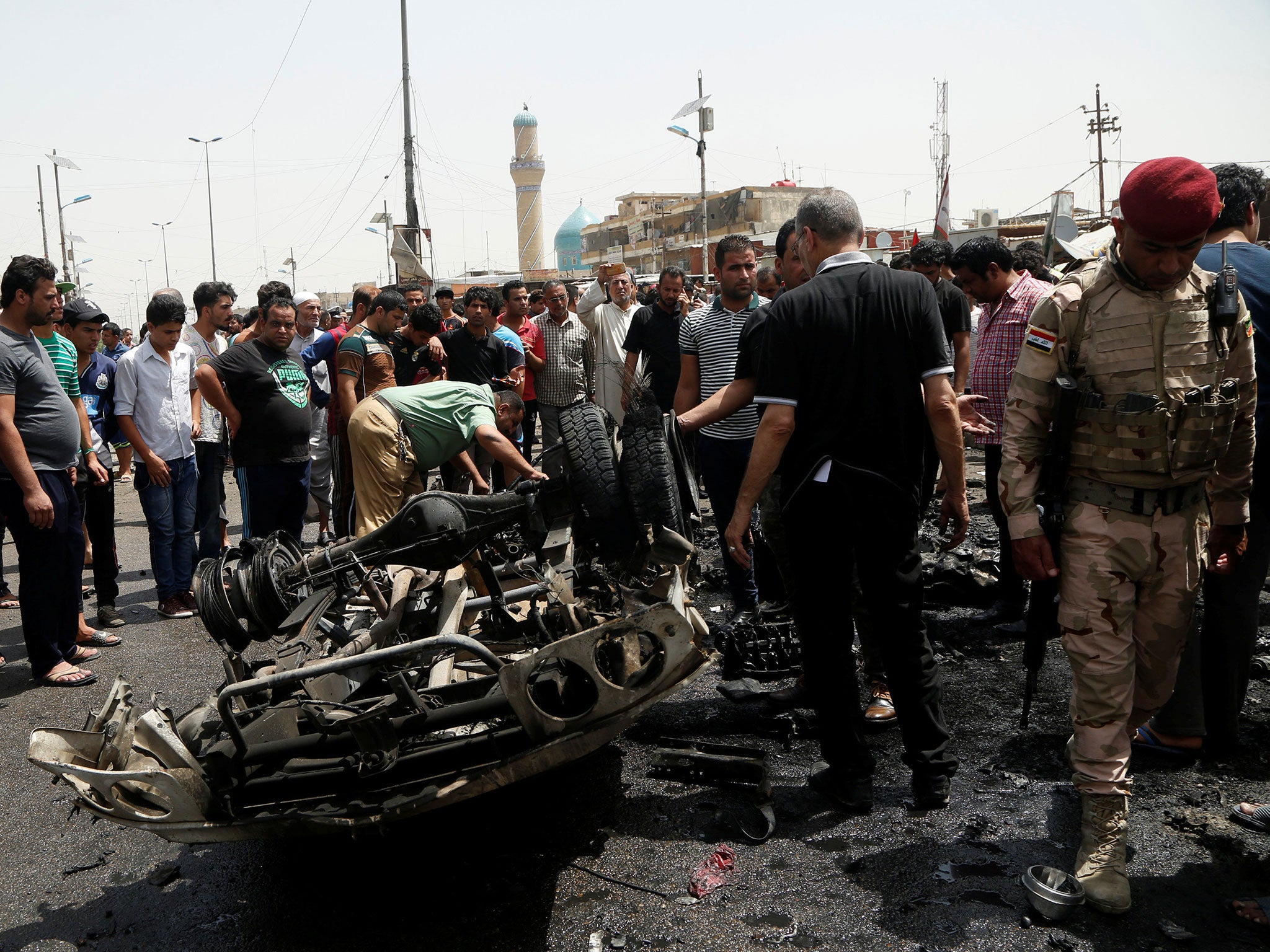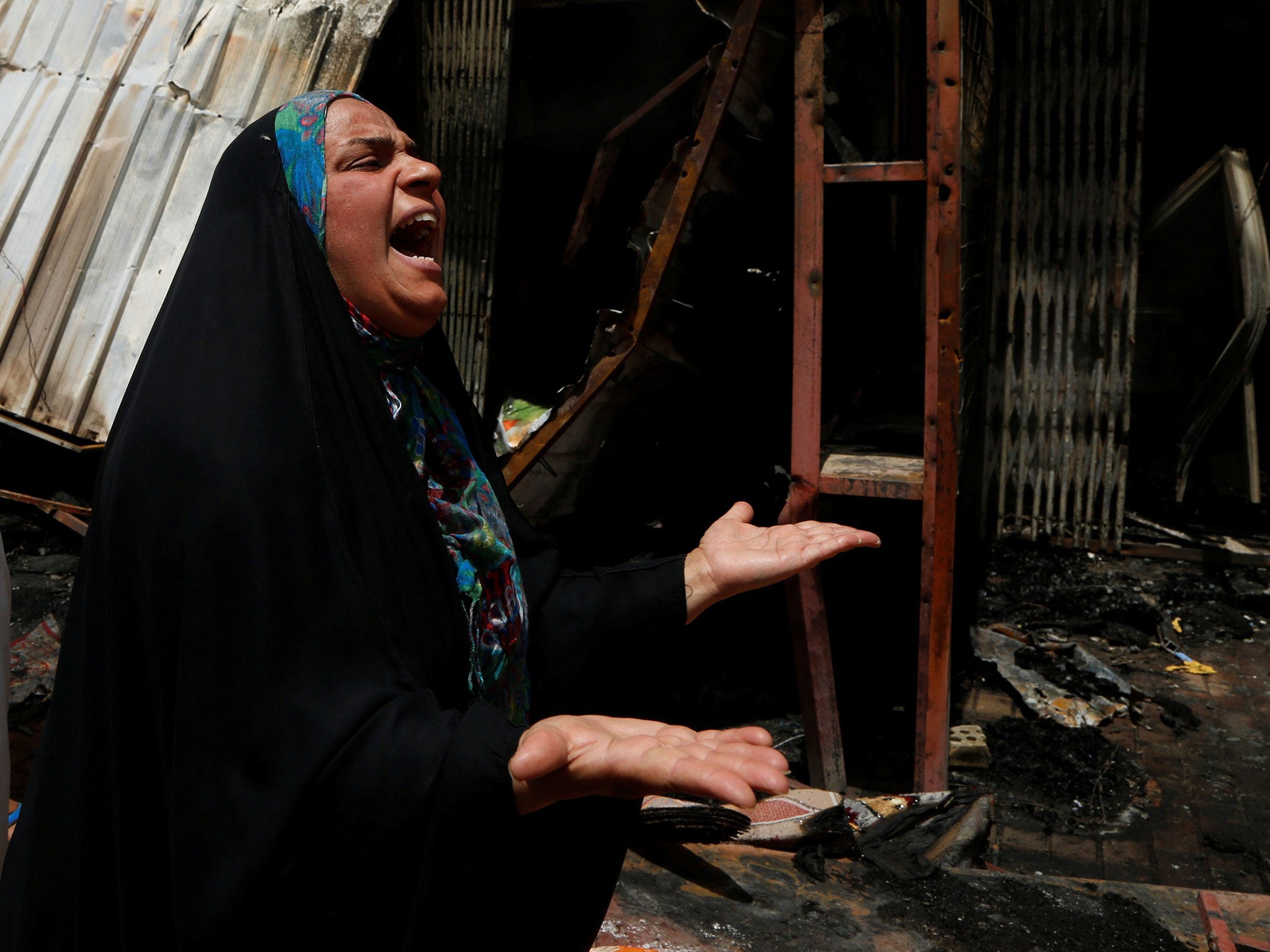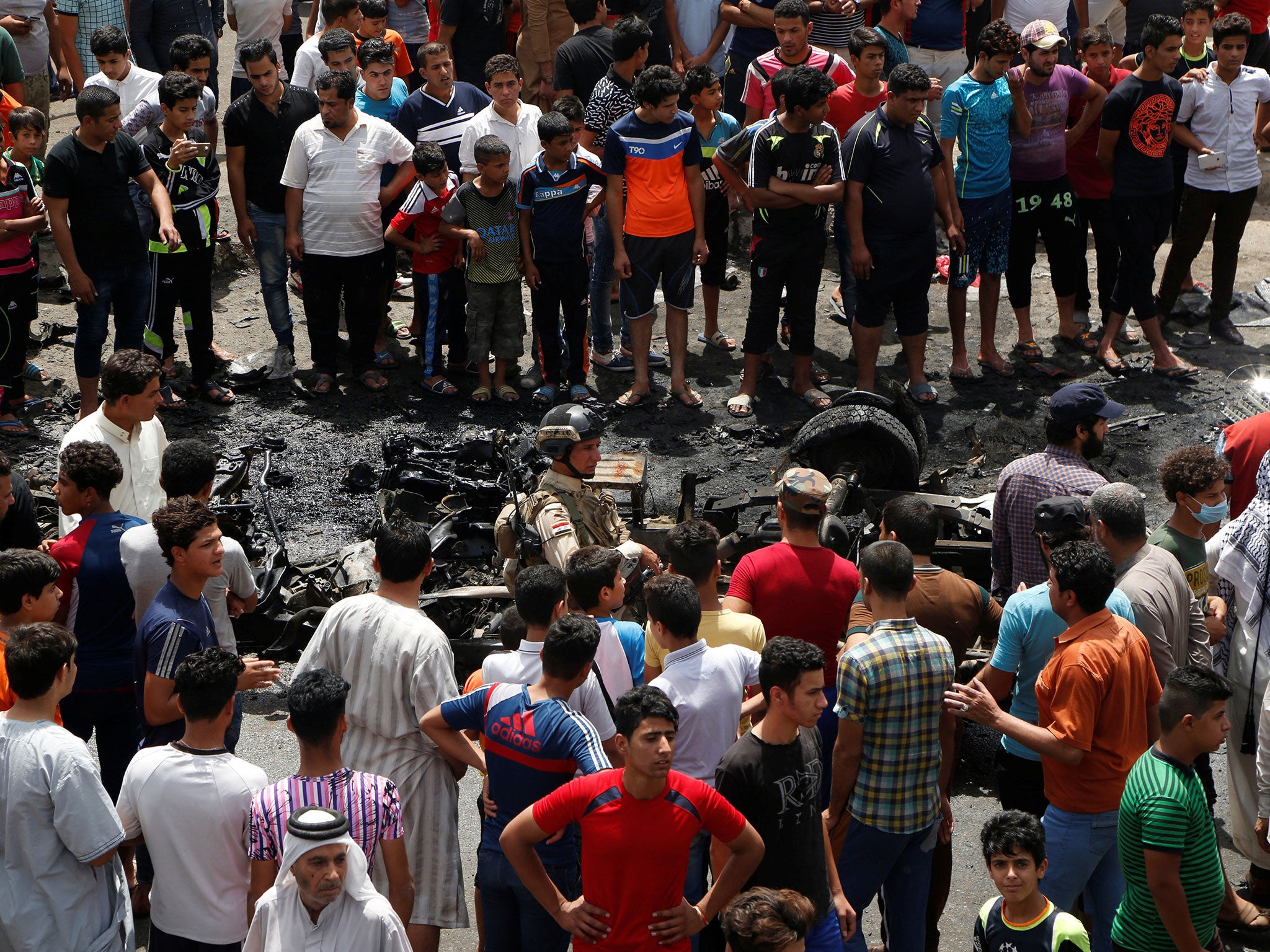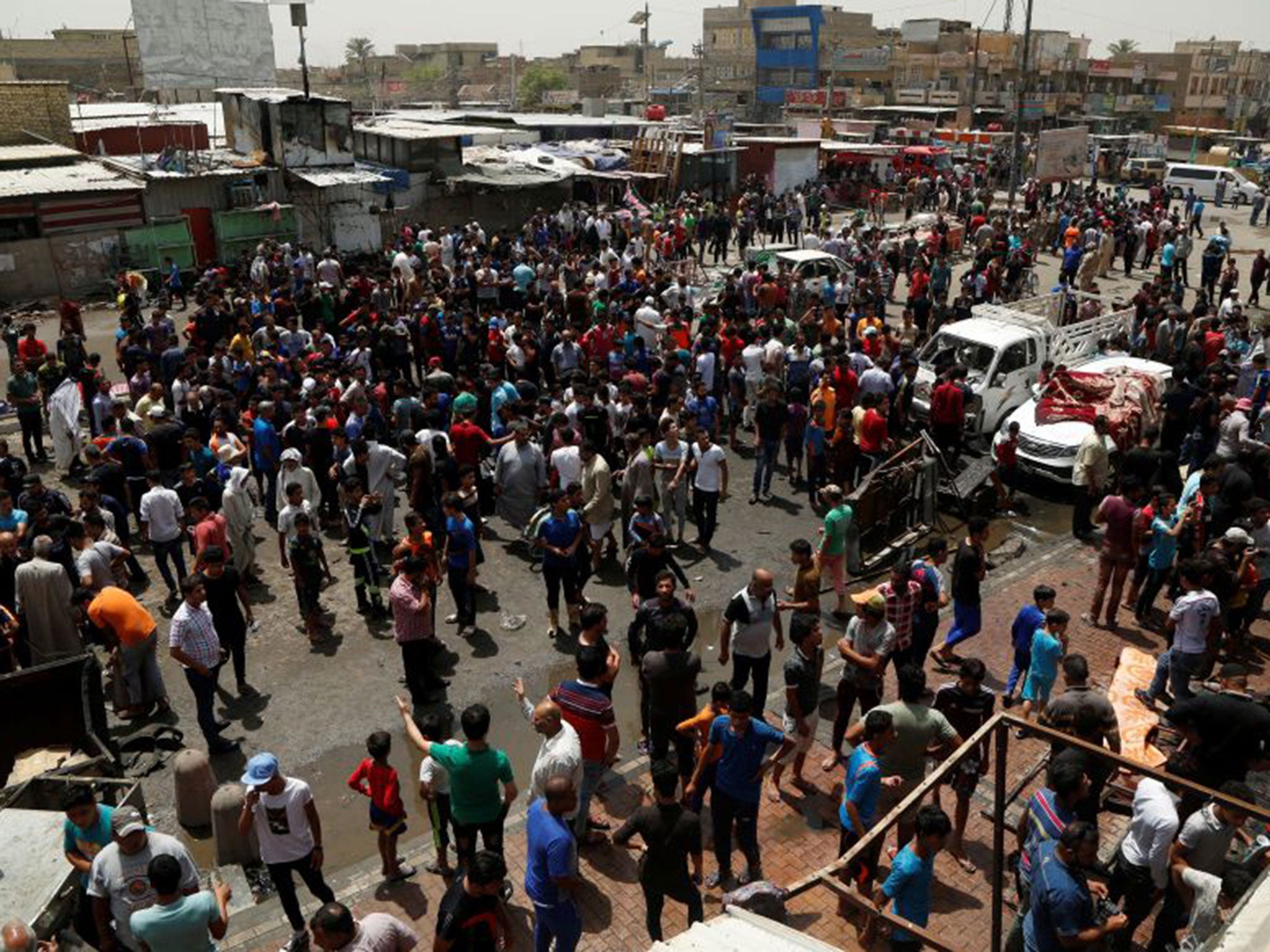Baghdad bombings: Isis claims responsibility for killing at least 88 people in three explosions in Iraq capital
Isis claimed responsibility for the bombings, which targeted Shia areas and police

Your support helps us to tell the story
From reproductive rights to climate change to Big Tech, The Independent is on the ground when the story is developing. Whether it's investigating the financials of Elon Musk's pro-Trump PAC or producing our latest documentary, 'The A Word', which shines a light on the American women fighting for reproductive rights, we know how important it is to parse out the facts from the messaging.
At such a critical moment in US history, we need reporters on the ground. Your donation allows us to keep sending journalists to speak to both sides of the story.
The Independent is trusted by Americans across the entire political spectrum. And unlike many other quality news outlets, we choose not to lock Americans out of our reporting and analysis with paywalls. We believe quality journalism should be available to everyone, paid for by those who can afford it.
Your support makes all the difference.Isis has killed more than 80 people in a trio of explosions in Baghdad targeting Shia districts and police officers.
At least 63 people died when a car bomb was disguised as a fruit and vegetable stall in a packed market on Wednesday morning, and two car bombs later in the day left another 25 dead.
The terrorist group claimed responsibility for a suicide bombing at a security checkpoint in the Iraqi capital's Kadhimiya neighborhood, killing 18 - including five police officers - and wounding 34.

The area is regarded as holy for Shias and houses a mosque at the site of two imams' graves.
Isis also said it was behind a third blast at a checkpoint in a commercial thoroughfare in the Jamiya district, which left seven dead and wounded 22.
The first blast hit a crowded outdoor market in a predominantly Shia area of the Iraqi capital's Sadr City district, ripping through nearby buildings and leaving cars riddled with shrapnel.
The explosion at around 10am local time (8am BST) set nearby shops on fire including a beauty salon, where several brides were believed to be getting ready for their weddings.
Police and medical officials said at least 63 people were killed and 78 wounded. There were fears the death toll would rise as many victims remained in a serious or critical condition.

Karim Salih, a 45-year old grocer, said the bomb was concealed inside a pick-up truck loaded with fruit and vegetables. He said it was parked by a man who quickly disappeared among the crowds of people.
“It was such a thunderous explosion that jolted the ground,” he told the Associated Press.
“The force of the explosion threw me for meters and I lost conscious for a few minutes."
Isis released an online statement claiming it had targeted a gathering of Shia fighters in the attack.

The terror group has carried out numerous similar massacres in recent month as it continues to control swathes of northern and western Iraq, where it is being pushed back by Iraqi forces, Shia militias and the Popular Mobilisation Forces.
Barack Obama has hailed the recapture of around 40 per cent of former Isis territory in the country but terror attacks in the capital and elsewhere have continued unabated.
On 2 May, the so-called Islamic State claimed responsibility for killing 18 Shia pilgrims in another car bombing in Baghdad, while a double explosion had killed more than 30 people in the Iraq city of Samawah the previous day.
Sadr City has seen several rounds of fighting since the Iraq invasion in 2003, with terror attacks rising since a vehicle bomb blast that killed more than 60 civilians in 2009.
In February, Isis carried out devastating back-to-back market bombings in the district, killing at least 73 people.
The Sunni jihadist group has declared Shia Muslims apostates and has targeted them in bombings at mosques, markets and on pilgrimages in several countries.
Sadr City is named after the father of a controversial Shia cleric, Muqtada al-Sadr, whose supporters stormed Iraq's parliament buildings and highly protected Green Zone last month.
Public anger continued after Wednesday's bombings, when demonstrators at the scene of the massacre blamed the government for the carnage.
“The state is in a conflict over (government positions) and the people are the victims,” a man named Abu Ali told the AFP news agency: “The politicians are behind the explosion.”
The UN's Special Representative for Iraq, Jan Kubis, warned last week that a political deadlock and civil unrest threatened to undermine progress and urged Iraqi authorities not to underestimate a "formidable and determined enemy".
According to the United Nations at least 741 Iraqis, including more than 400 civilians, were killed in April and 1,374 wounded due to the ongoing violence.
Additional reporting by agencies
Join our commenting forum
Join thought-provoking conversations, follow other Independent readers and see their replies
Comments